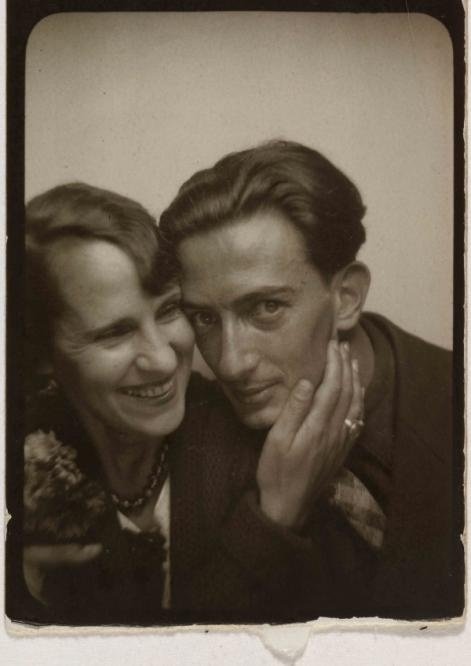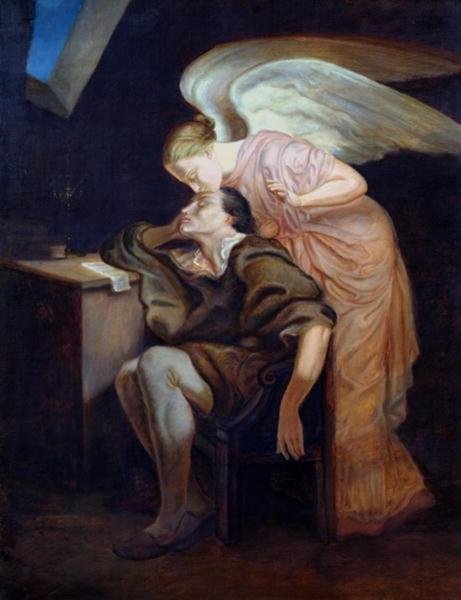My Muse is an Asshole
And yes, he is a real person.
There is a common conception of the muse as a romantic figure. “My wife is my muse,” for example, is a popular kind of statement for artists who have found romantic stability.
Of course, we all find inspiration from different places. But the true idea of a muse, the concept that has stimulated beautiful artwork across centuries, is probably not one that involves healthy, stable romance. The best muses, in fact, are often the worst people to be involved with.
In Greek history, muses were experts at what they did, and humans who challenged them would always lose. But the word has come a long way since then, with today's idea usually being something like, in more modern terms, a Manic Pixie Dream Girl. The muse is a beautiful, interesting person that may be seen as more concept than individual. They provide inspiration for an artist, and often they are women who don't get talked about as autonomous beings, just as sources of inspiration.
 Salvador Dalí and muse Gala
Salvador Dalí and muse Gala
In short, the way people talk about muses can be problematic. But as an artist, the concept is very real and very important to me. Muses in real life are not necessarily gendered, and they are just as real and as deeply flawed as any individual. And they are genuine sources of deep inspiration. Yet the process isn't usually as beautiful as popular conceptions make it seem.
I was editing a story of mine recently, which was entirely inspired by my muse, the real person. I've known him for years, as a sometimes-friend, sometimes-lover, and constant source of frustration and fascination. The story covers an afternoon we spent together, with flashbacks that fill in the backstory of our complex, strange relationship. That day was a good day, and I told the story beautifully. In fact, it’s one of the best I’ve ever written. But I was only able to write it because my muse is an asshole.
We spent many good days together over a period of a few months during which he had convinced me that he’d changed, was a better person now. I really believed him. And during that time, while things were good, I made no art. No good art, at least. I wrote less than usual, the bare minimum, really. And nothing came out of it that constituted beauty. Quality. Art.
Then, my muse suddenly dropped out of my life. He'd done this before, but since I thought he'd genuinely changed it kind of blindsided me this time. Things could have been easily made better with a single in-person conversation, but instead he chose to be evasive and confusing. There’s a long story to it that I’m not ready to tell yet. It put me in a dark place for almost an entire year.
But as soon as his behavior started to change—when I intuitively knew what he was going to do, although before I'd admitted it to myself—I was able to write that beautiful essay, one of my best. I wrote it because I had to. I was compelled to do something to process the internal turmoil that was starting, now that my muse was no longer the good partner I’d briefly believed him to become.
I know this all sounds obnoxiously vague. I don’t want to reveal too many details about this muse, who is a real person and who I still care about too deeply to drag publicly. But I am more interested in the concept right now than the person, anyway. Your muse cannot be your stable friend or romantic partner. Your muse can be your lover, in fact probably should be your romantic interest at least at some point. But they can’t bring unadulterated happiness and stability into your life. If they do, they aren’t a good muse, and you won’t make good art.
 "The Kiss of the Muse," Paul Cézanne
"The Kiss of the Muse," Paul Cézanne
A good muse, as far as I can tell, is someone who keeps you pissed off, stressed out, depressed, or terrified enough that you have to make art about it. If you don’t, you won’t be able to cope; at least, us artists won't. Creation is how we cope with the darker side of life, which is why good art is so often sad. So, an effective muse will probably be an asshole, or negligent, or detrimentally dysfunctional in interpersonal relationships in some way.
My muse is an asshole. He’s a shitty friend. He’s someone that I’m not sure I ever want to speak to or see again. (I do want to, of course. But I also know how bad it would be for me.)
But all the things that make him a shitty friend? They're what make him such a good muse.
And once you have a muse, as far as I can tell, you have them for life.
If you like my writing, you can find more of it at elysehauser.com.
Thank you for this interesting article. I sincerely hope that you are wrong though, for my own sake. I don´t have a muse, and I don´t know if I will ever have one, But I have been inspired by different life experiences, both good and bad, and I believe there is a trick to using happiness for inspiration:
Channel it, and do not be obsessive about it, especially if the source of the happiness is romantic and/or sexual.
That's an interesting perspective! I definitely don't want to limit sources of inspiration; I've just noticed a lot of patterns. But maybe a different approach is key sometimes.